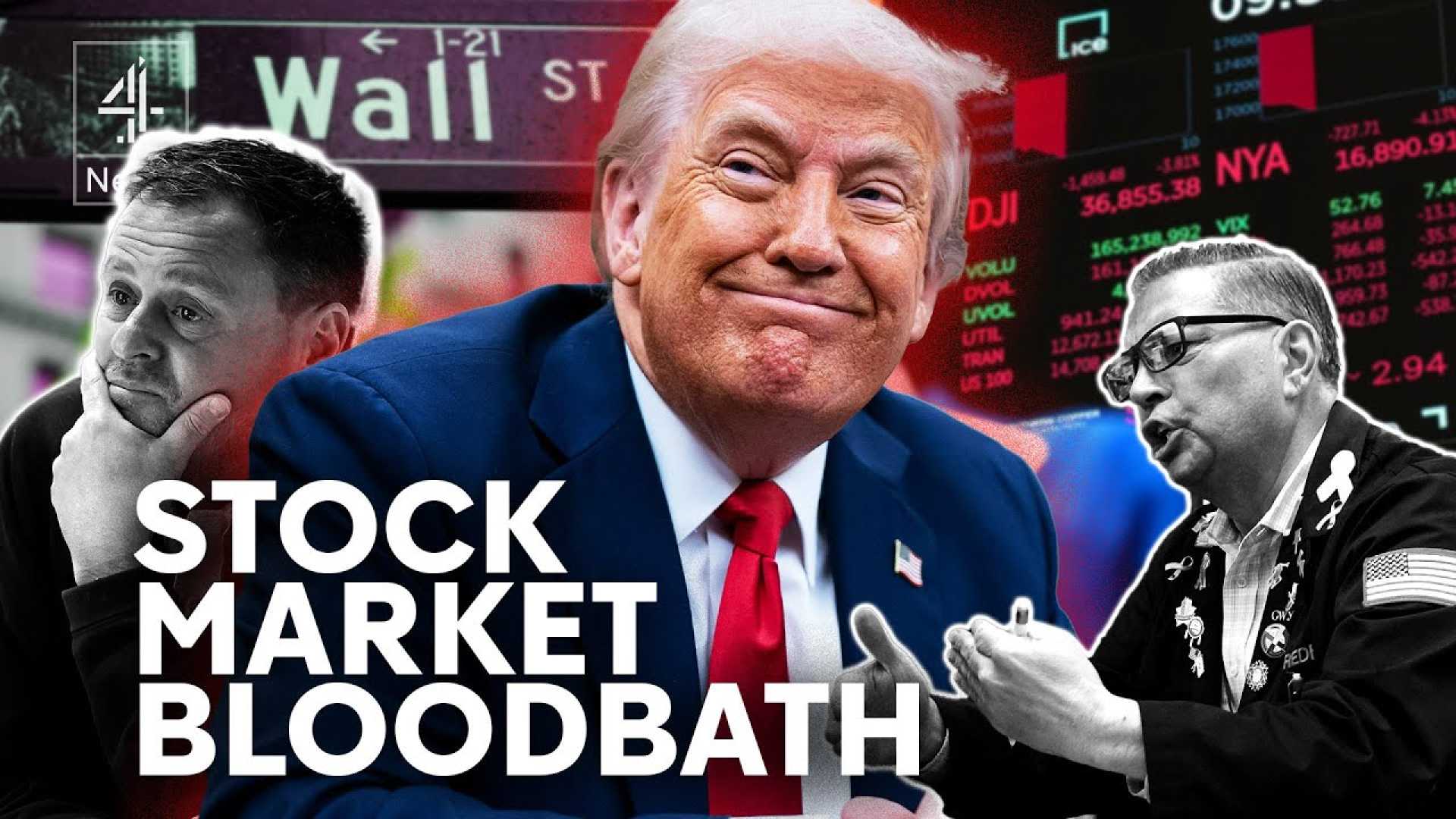Business
Rising Tariffs Trigger Global Market Turmoil and Business Doubts

WASHINGTON (AP) — President Donald Trump‘s recent announcement of broad tariffs has sent global stock markets into a steep decline, prompting concerns among investors about inflation, dwindling corporate profits, and the specter of an impending recession.
The downturn began on April 2, when Trump unveiled the tariffs, resulting in the S&P 500 index falling nearly 10.5% in just a few days. This included the index’s largest single-day point loss in recent memory. In March, the S&P 500 had already slipped into correction territory, marking a decline of more than 10% from its peak. Peter Lynch, vice-chairman of Fidelity Investments, described this sentiment as a “euphemism for losing a lot of money rapidly.”
As the S&P 500 teeters on the brink of bear market territory—with a 20% decline from its peak—experts are urging investors to reassess their strategies. On Monday, the index oscillated around this threshold, heightening fears of further losses.
In light of these fluctuations, financial experts provided insights on the current turmoil. Michael Pozen, a senior lecturer at MIT Sloan School of Management, explained that U.S. companies bear the brunt of these tariffs on imported goods. If firms choose to absorb these costs, their profits will likely diminish. Alternatively, if they raise product prices to offset the tariffs, there could be a decline in consumer demand, further squeezing profits.
“In either case, stock prices of these companies will fall,” Pozen noted, emphasizing the connection between tariff implementation and market performance.
Moreover, Simon, a professor of economics at Northeastern University, commented on the stock market’s sensitivity to unexpected events. “One thing that the market doesn’t like – and one thing that businesses don’t like – is uncertainty,” he said. “And right now, there’s virtually nothing out there except uncertainty.”
He elaborated that tariffs, equating to taxes on consumers, detract from spending, which in turn impacts corporate profits and triggers a “panic” sell-off in the market. “The market is volatile,” Simon added. “It goes up and down at the drop of a hat.”
This volatility is particularly troubling for investors who have seen substantial losses in their retirement accounts, which include various assets like stocks and bonds. Simon pointed out that younger investors may bear the brunt of losses more acutely, while those nearing retirement might have already shifted their portfolios away from high-risk stocks.
“If you had expectations of what you’re going to have at retirement, you may have to reduce those expectations,” said Williams, a professor at Boston University‘s Questrom School of Business. “You may even think about working longer or part-time.”
Despite these concerns, both Simon and Williams advised against impulsive decisions in reaction to market swings. “The first thing they shouldn’t do is panic,” Simon asserted. “Do not make a rash decision and keep emotion out of your decision-making.”
They also recommend that investors develop budgets that factor in retirement timelines and potential market impacts.
“Now is not the time to redo a portfolio,” emphasized Williams, as the market might incur even further dips. He postulated that potential economic recession may present opportunities to invest in cheaper stocks later.
While there may be a silver lining—bond values typically rise as equity markets fall—experts concluded that this does not fully offset the declines witnessed in stock prices. “The stock market is a playground for people with money,” Simon said. “But if people would just shrug their shoulders and ignore it, then there would be no change in spending, no change in GDP, and everybody would be fine – no changes in jobs, no changes in inventories.”
Simon also noted that public perception plays a critical role in economic outcomes. “It’s when people respond – that’s the problem,” he said, adding that media narratives about the losing market can incite widespread reactions that exacerbate downturns.
In a stark warning, Ackman, a hedge fund manager, likened the nearing full implementation of tariffs to “economic nuclear war.” He expressed frustration at the perceived policy errors that could hinder economic progress and urged caution among business leaders. “We are heading for a self-induced, economic nuclear winter unless there is a change in course,” he wrote on social media.
Even billionaire entrepreneur Elon Musk has voiced support for reducing tariffs, suggesting a zero-tariff arrangement between the U.S. and Europe. On a recent video conference, he proposed creating a free trade zone to stimulate growth.
As stock markets in Asia and Europe plummeted following Trump’s tariff announcements, the future of the U.S. economy appeared increasingly uncertain, with financial experts advocating for vigilance and strategic planning amidst turbulent times.












